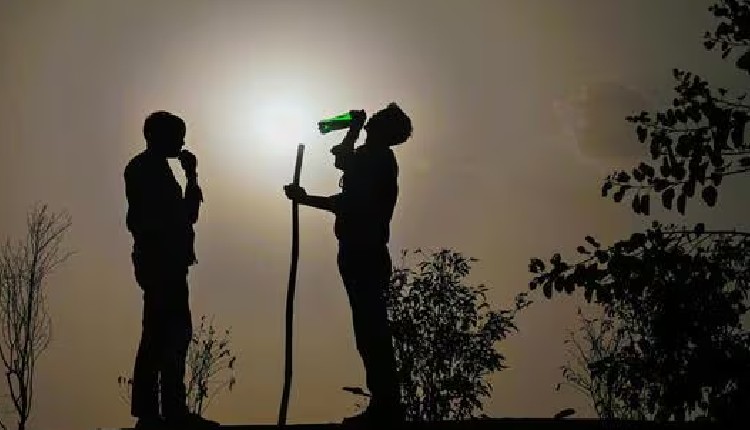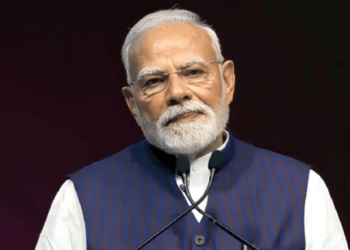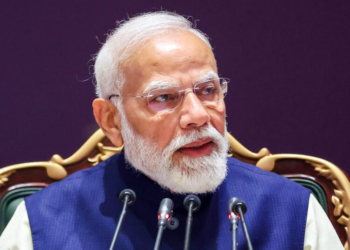New Delhi: With Mumbai seeing the highest changes in the nighttime temperatures, India continues to suffer a severe heatwave, a new analysis on Friday showed climate change added nearly 50 to 80 nights each year where the temperature exceeded 25 degrees Celsius, with serious impacts on sleep and health.
Climate change is leading to a rise in nighttime warming, which is impacting sleep quality and human health in India and across the globe, said the analysis by Climate Central and Climate Trends.
Nighttime temperatures have increased even more rapidly than daytime temperatures as the world heats up due to climate change, primarily caused by burning fossil fuels like coal, oil, and gas.
As one of the countries most vulnerable to the impacts of the climate crisis, India has experienced a significant rise in minimum nighttime temperatures over the last decade due to climate change.
The national capital on June 18 experienced its warmest night in at least 12 years, with the mercury touching 35.2 degrees Celsius, says the India Meteorological Department. This is the city’s highest minimum temperature since 1969.
The analysis shows that nearly 50 to 80 days each year were added above this threshold by climate change in cities across Kerala, Karnataka, Maharashtra, Tamil Nadu, Punjab, Jammu and Kashmir, and Andhra Pradesh between 2018 and 2023.
Among the metro cities, Mumbai has seen the highest changes in the nighttime temperatures, with the city experiencing an additional 65 days of warmer nights due to global warming.
West Bengal and Assam are the regions that have been most impacted, with cities like Jalpaiguri, Guwahati, Silchar, Dibrugarh and Siliguri experiencing between 80 and 86 additional days each year above the 25 degrees threshold due to climate change, on average.
Several cities saw between 15 and 50 additional days where the minimum temperatures exceeded 25 degrees due to the influence of climate change, including Jaipur, with an additional 19 hot nights attributable to climate change.
Meanwhile, in both observations and in the counterfactual climate, the nighttime summer temperatures across India often exceed 20 degrees over the entire summer period.
The cities that had the largest number of days where the minimum temperature exceeded 20 degrees due to climate change are Gangtok, Darjeeling, Shimla, and Mysore, with an average of 54, 31, 30, and 26 days added by climate change, respectively.
Higher nighttime temperatures can cause physiological discomfort and impact human health by preventing body temperature from cooling off during the night, increasing mortality risks.
There is also a growing body of evidence that as nighttime temperatures rise, it is adversely affecting the quality and length of sleep.
Poor sleep adversely affects physical and mental health, cognitive functioning and even life expectancy. Hot nights can have disproportionate impacts on vulnerable groups, including the elderly and people, who do not have access to proper cooling mechanisms.
These findings come during a week that saw new records for nighttime heat in several Indian cities.On June 19, Delhi shattered the all-time high minimum temperature record, with the mercury reaching 35.2 degrees overnight. Delhi recorded almost four numbers of additional nights over 25 degrees between 2018 and 2023, according to the Climate Central analysis.
On June 18, Alwar in Rajasthan had a minimum temperature of 37 degrees, the highest-ever nighttime temperature since records began in 1969.
Alwar experienced almost nine additional nights over 25 degrees that are attributable to climate change between 2018 and 2023.
In Uttar Pradesh, Lakhimpur Kheri, Shahjahanpur and Varanasi also witnessed their highest recorded minimum temperatures at 33 degrees, 33 and 33.6 degrees respectively this week.
Varanasi saw four additional nights over 25 degrees due to climate change from 2018 to 2023.
These increasingly frequent extreme nighttime temperatures are contributing to heat stress, exhaustion and heat-related deaths.
The current ongoing heatwave in India has been made hotter, frequent and more likely by climate change, according to scientific studies by World Weather Attribution and ClimaMeter.
Roxy Mathew Koll, Climate Scientist, Indian Institute of Tropical Meteorology, Pune, “The urban heat island effect is most visible in the nighttime temperatures. Cities turn into urban heat islands when buildings, roads, and other infrastructure absorb and re-emit heat, causing cities to be several degrees hotter than surrounding rural areas.”
“During the day, the sun’s rays reach as shortwave radiation and heat the earth’s surface. At night, the heat escapes as longwave radiation. While shortwave radiation can easily penetrate through and reach the surface, the longwave gets trapped easily by concrete and clouds.”
Aarti Khosla, Director, of Climate Trends, said, “Like day temperatures, night temperatures have also shown constant and steady rise over the last few years. Warm nights have been punishing this summer with several cities shattering five decades of records. Cities will bear the highest brunt which will get worse due to the urban heat island effect.”
“Several studies have already established that by the turn of the century, without very large reductions in fossil fuel burning, nighttime temperatures will not fall below 25 degrees in some places during hot weather impacting one’s ability to recover for the next day. If we do not act now, nights will continue to be hotter, longer and sleepless, especially for the vulnerable.”
(IANS)
















